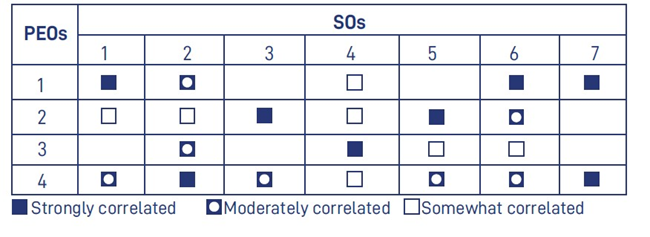Al-Ahliyya Amman University
Program Description
Robotics and Artificial Intelligence Engineering
Bachelor
The bachelor’s program in Robotics and Artificial Intelligence Engineering was established in 2023. This initiative significantly contributes to the workforce by producing adept engineers equipped with a bachelor's degree, capable of staying abreast of the latest advancements in the realms of robotics and artificial intelligence. Graduates from the Robotics and Artificial Intelligence Engineering program enjoy promising career opportunities, with the majority being actively sought after by various institutions and companies seeking their expertise for direct engineering applications in the robotics technology sector.
These engineers possess the skills to design robotic arms employed in diverse industries such as car manufacturing on assembly lines, packaging of food materials, construction of devices, and applications in the electronics sector. Their qualifications and capabilities make them valuable assets in meeting the demands of contemporary engineering challenges, further fostering innovation and progress in the field.
Robotics and Artificial Intelligence Engineering
Number Of Credit Hours
160

Faculty of Engineering
Admission Requirements
Admission requirements of the Bachelor degree in the Robotics and Artificial Intelligence Engineering program include a High School Certificate or equivalent in the following:
80%
- Scientific
- Scientific - Medical Field
- Scientific - Engineering Field
- Industrial
Job Opportunities

- The robotics engineering technology sector, which requires qualified engineers to design robotic arms used in car manufacturing, on assembly lines, packaging food materials, building devices, and electronic industries, among many others.
- Institutions and companies heavily relying on smart systems, including media, communications, banks, factories, government institutions, and universities.
Study Plans and Program Files
Educational Objectives

Program Educational Objectives (PEO's):
- Applying the principles of modern mathematics, electrical, electronic, and mechanical engineering sciences to support modern industries that contribute to the development of societies.
- Supporting leadership skills and collaborative spirit within a team to achieve creative thinking in the field of designing, building and programming robots.
- Adhering to professional ethics and social responsibility in the field of intelligent robotics engineering
- Active participation in finding solutions to contemporary challenges, keeping pace with scientific developments, and engaging in postgraduate programs.

Student Outcomes (SO's):
- An ability to identify, formulate, and solve complex engineering problems by applying principles of engineering, science, and mathematics.
- An ability to apply engineering design to produce solutions that meet specified needs with consideration of public health, safety, and welfare, as well as global, cultural, social, environmental, and economic factors.
- An ability to communicate effectively with a range of audiences.
- An ability to recognize ethical and professional responsibilities in engineering situations and make informed judgments, which must consider the impact of engineering solutions in global, economic, environmental, and societal contexts.
- An ability to function effectively on a team whose members together provide leadership, create a collaborative and inclusive environment, establish goals, plan tasks, and meet objectives.
- An ability to develop and conduct appropriate experimentation, analyze and interpret data, and use engineering judgment to draw conclusions.
- An ability to acquire and apply new knowledge as needed, using appropriate learning strategies.
=
Correlation of learning outcomes at PEO's with SO's:




